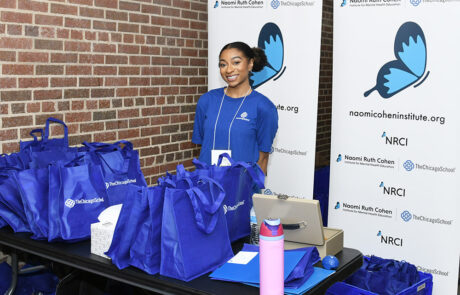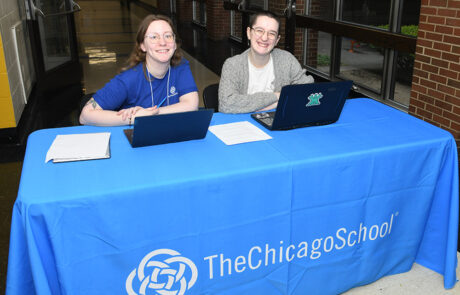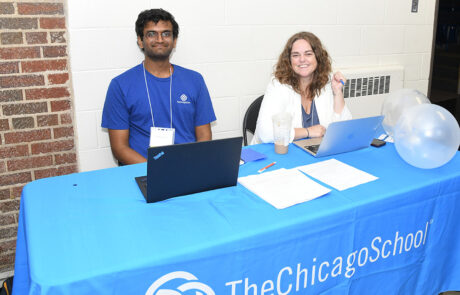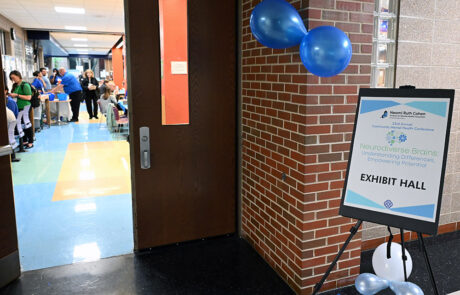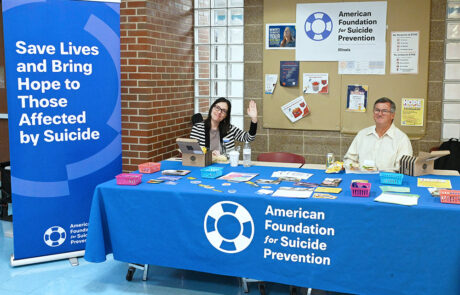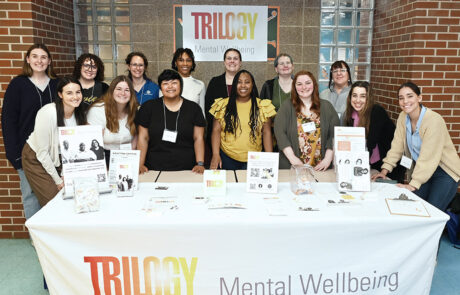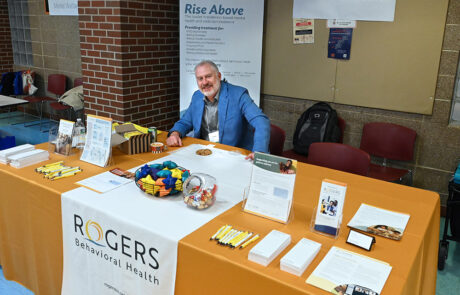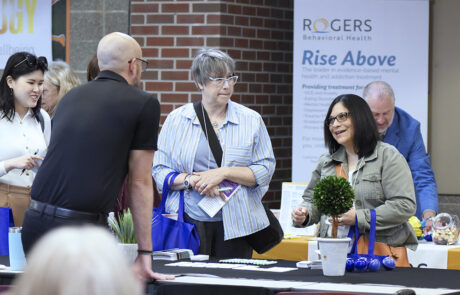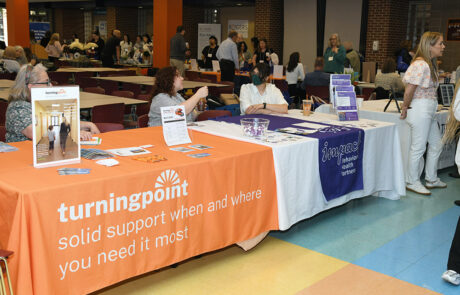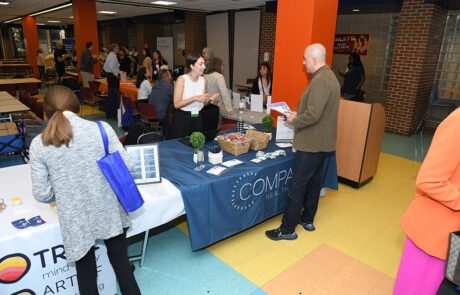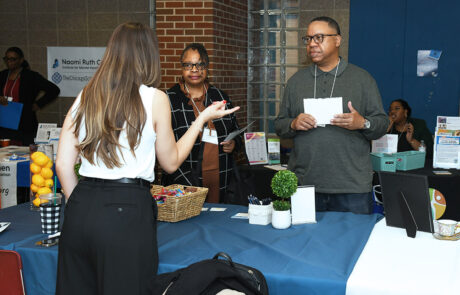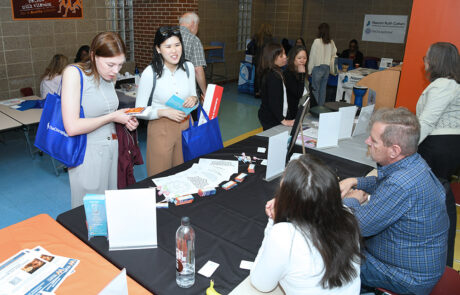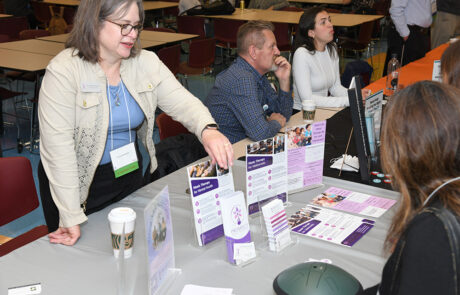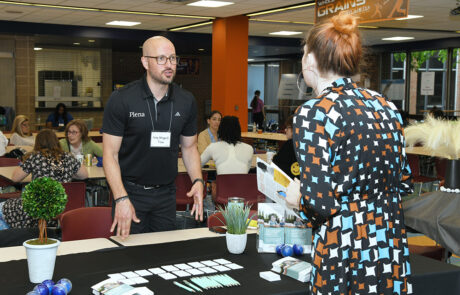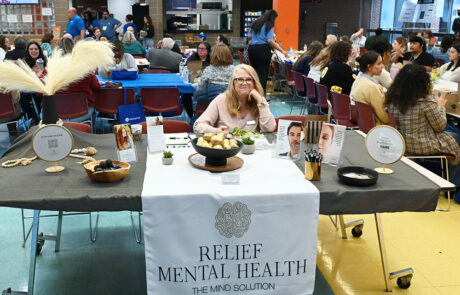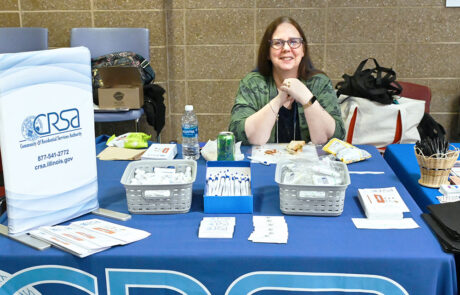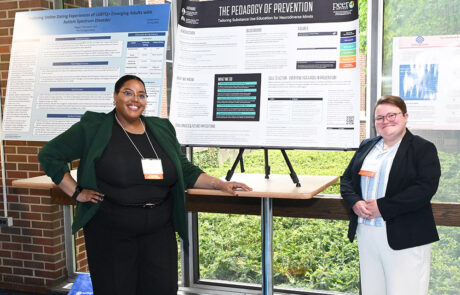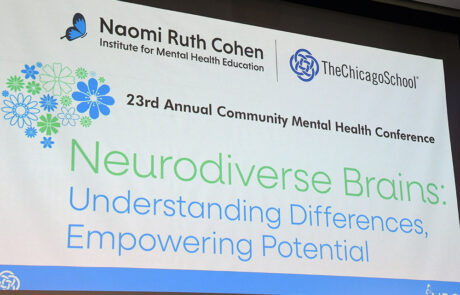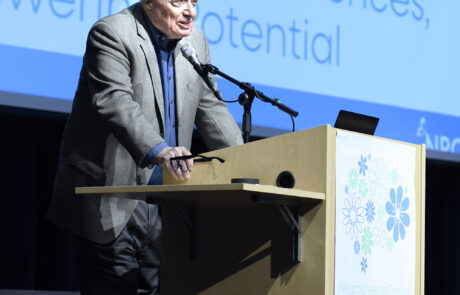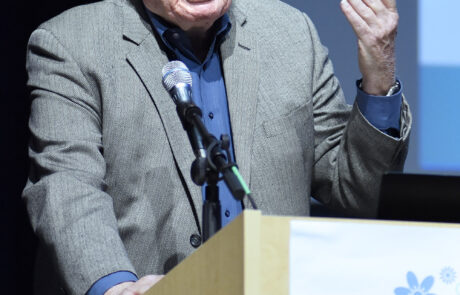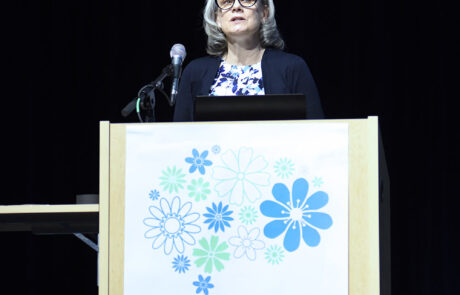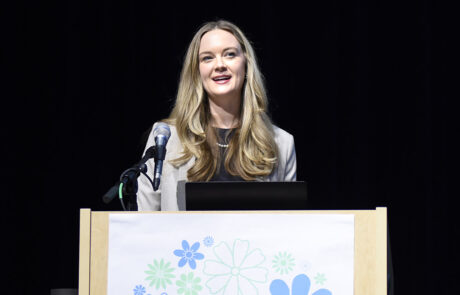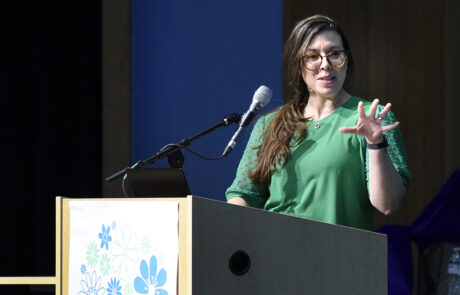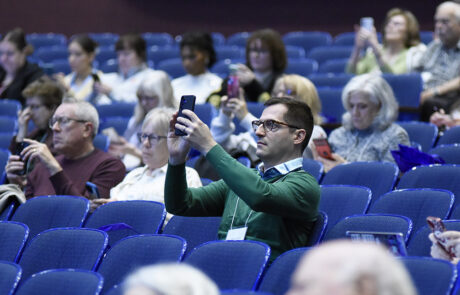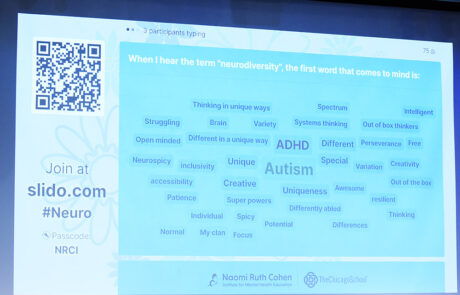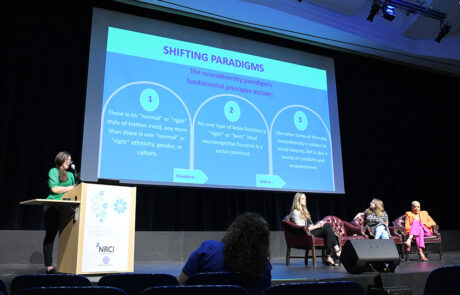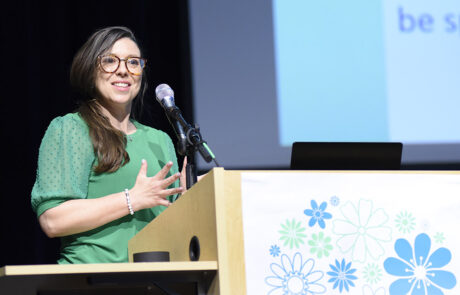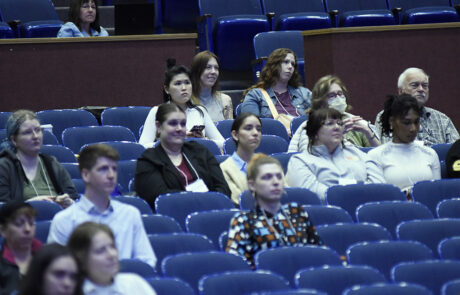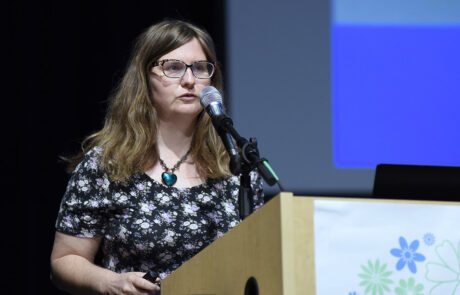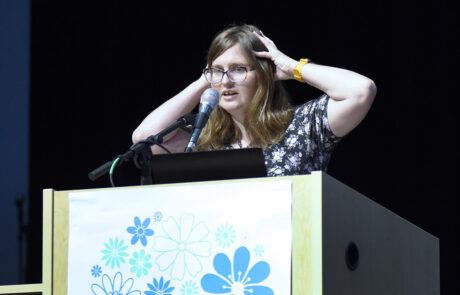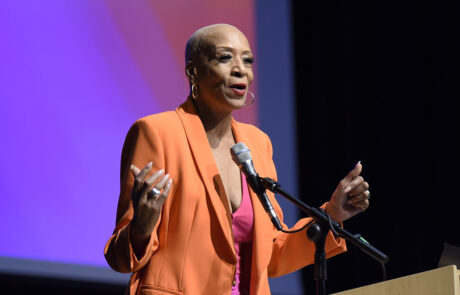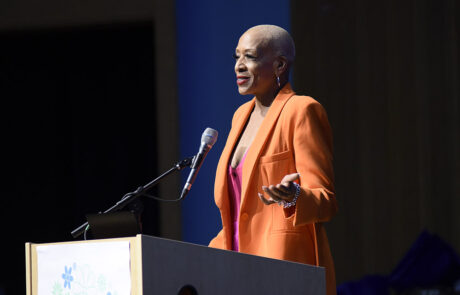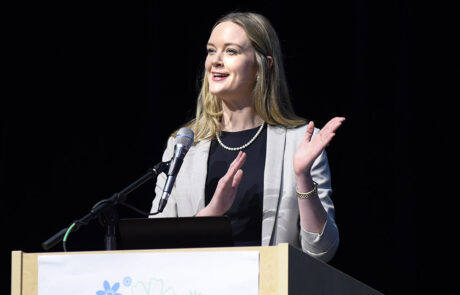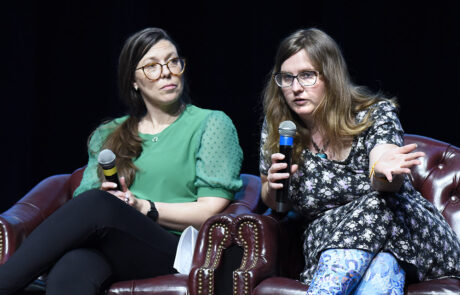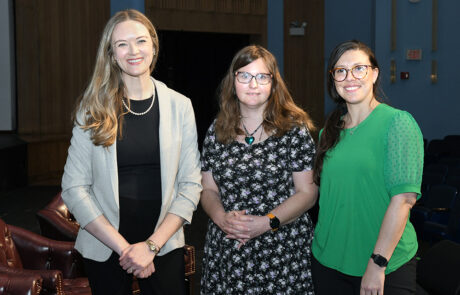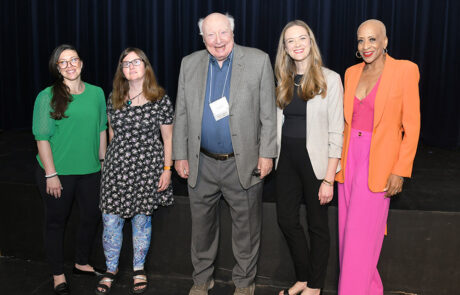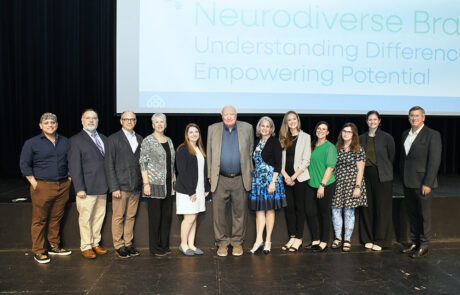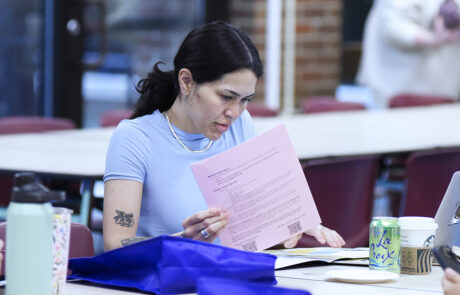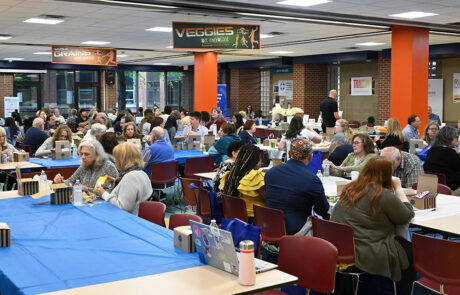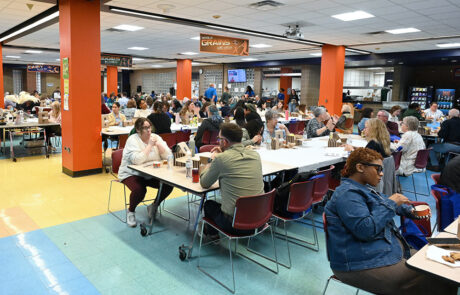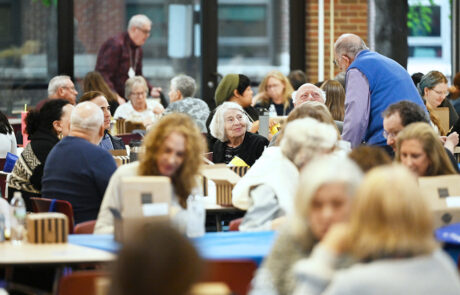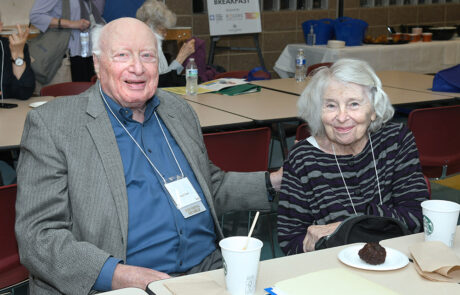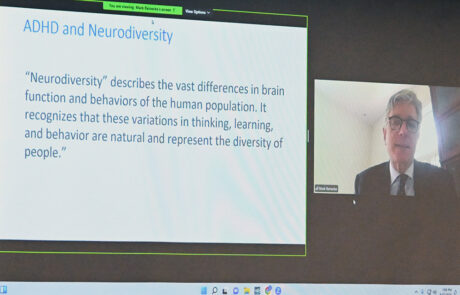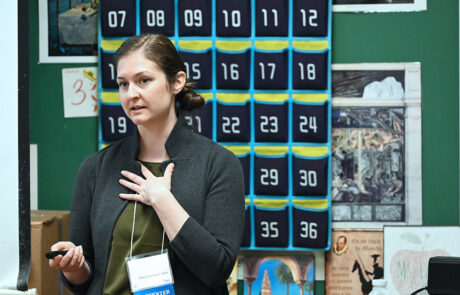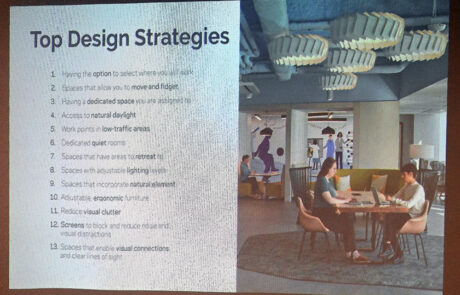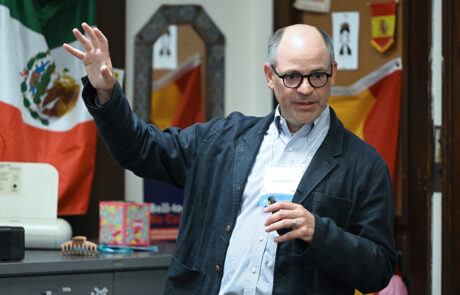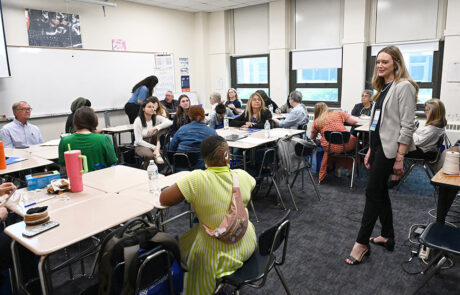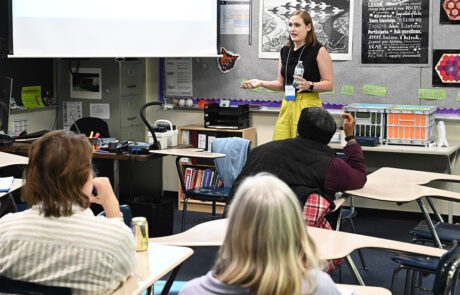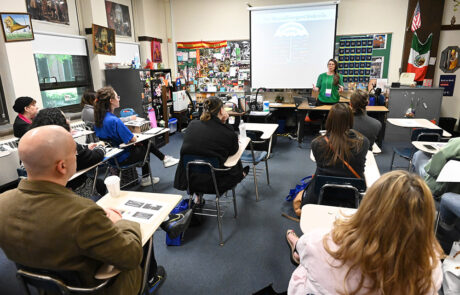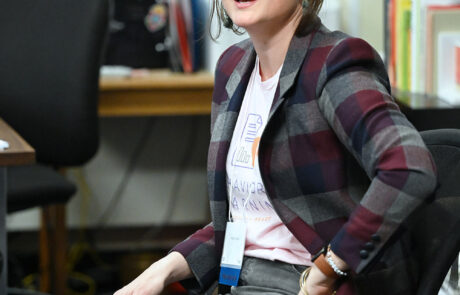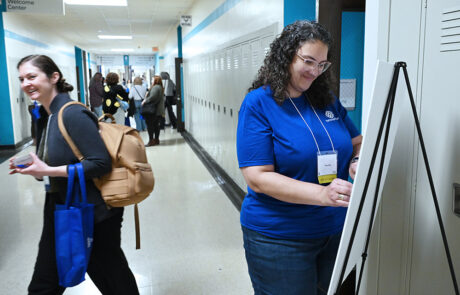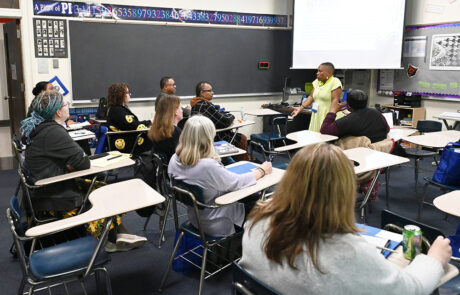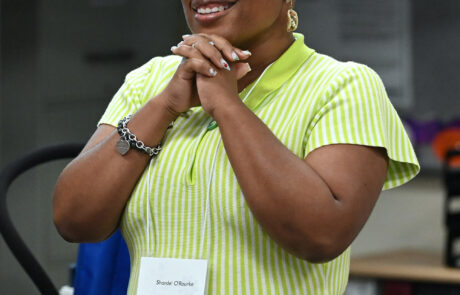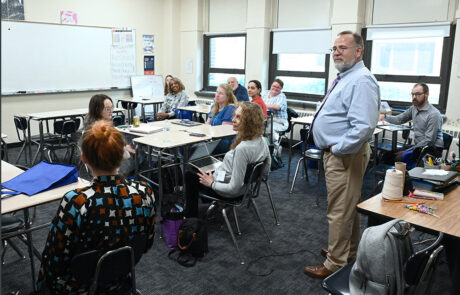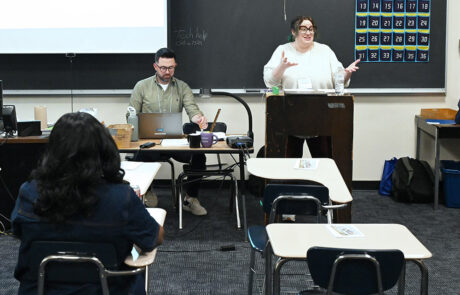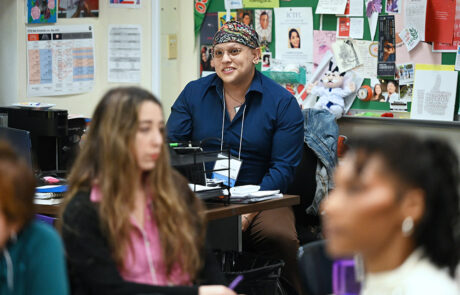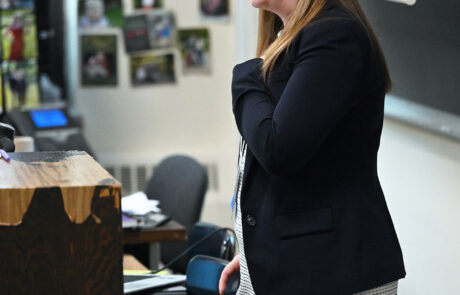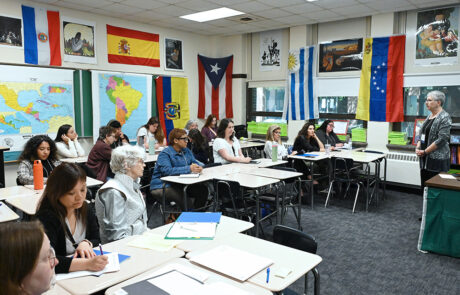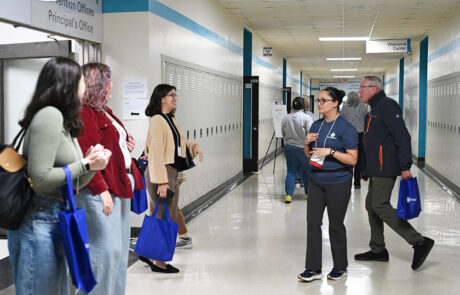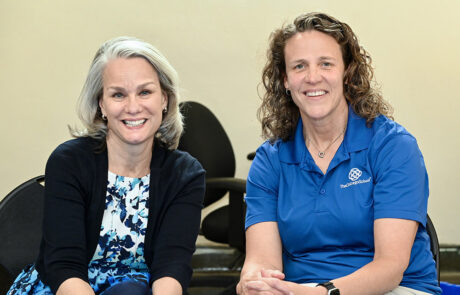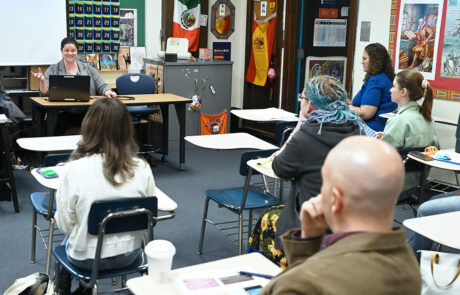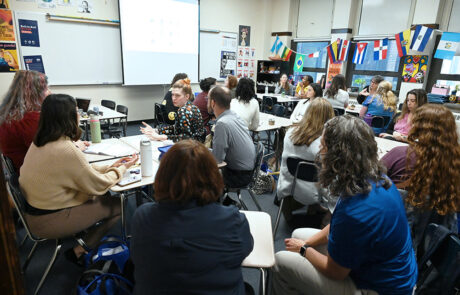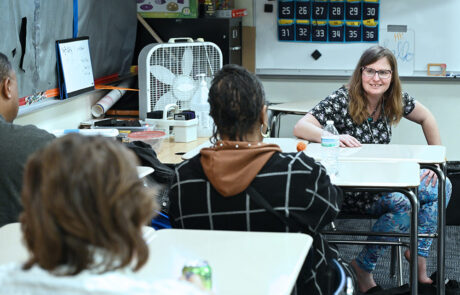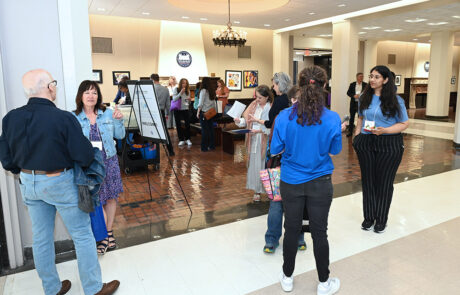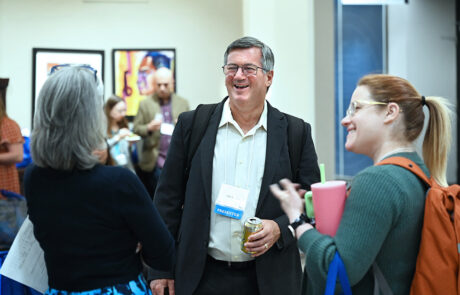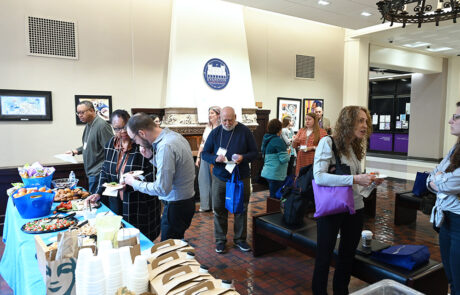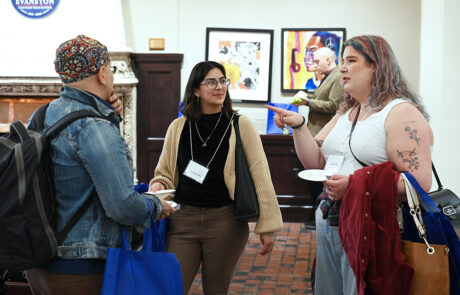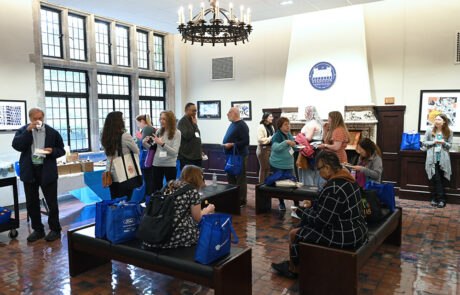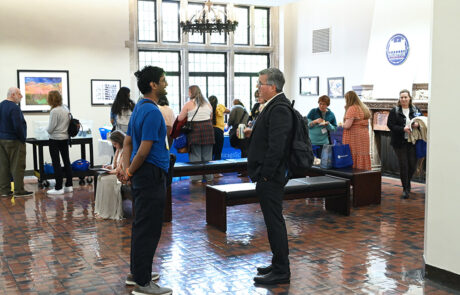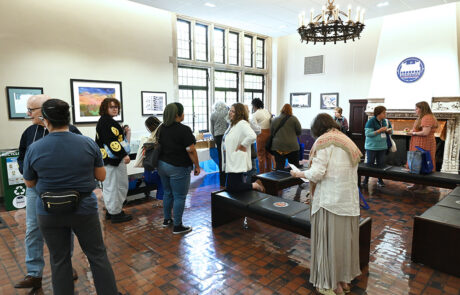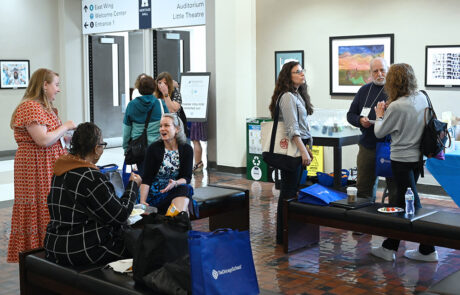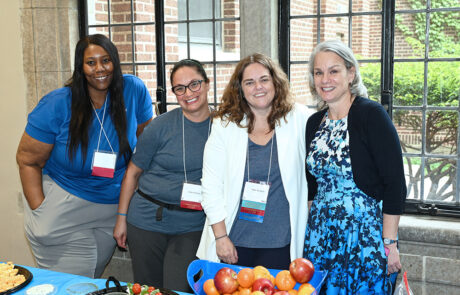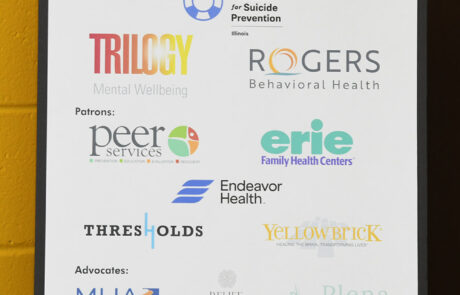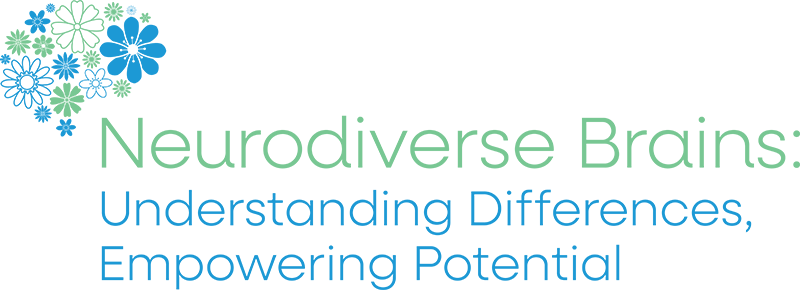
The idea of neurodiversity started in the 1990s to highlight that people with autism have many unique strengths, not just challenges. Over time, the term has expanded to include individuals with ADHD, learning differences, and other ways of thinking that don’t always fit into traditional molds. Today, many educators, employers, mental health professionals, and advocates are rethinking how we support and empower neurodiverse individuals.
At our most recent conference, we explored the evolving definitions of and perspectives on neurodiversity. We heard from experts, professionals, and individuals with lived experience who shared the latest research, practical strategies, and powerful personal stories.
Parents, teachers, employers, counselor/therapists, healthcare providers, individuals seeking support, and those just curious to learn more, gained valuable insights into embracing different ways of thinking and empowering potential.
We challenged assumptions, sparked new ideas, and celebrated the power of diverse minds!
Panel Information
Neurodiversity means all brains are different, just as gardens flourish with diverse types of plants. There is no “perfect” brain, and differences in how people think, learn, and feel are natural and valuable, much like how a variety of plants and flowers enrich a garden’s beauty (Armstrong, 2015). Neurodivergent individuals and their family members face unique challenges and opportunities when navigating the world. Research indicates that understanding and supporting psychological well-being requires a nuanced and empathetic approach that honors lived experiences and individual needs (Cooper, Kumarendran, & Barona, 2024).
The panel engaged in presentation and discussion of multiple dimensions of neurodiversity, including history, terminology, psychological well-being, and lived experiences relevant to individuals, families, clinicians, educators, employers and other community members interested in fostering mental health. Emphasizing inclusion and accommodation, this presentation aims to create a welcoming world for all kinds of minds, where differences are celebrated and empowered individuals can thrive.
Our program featured three local presenters sharing their expertise and perspectives, followed by a moderated interactive Q&A.
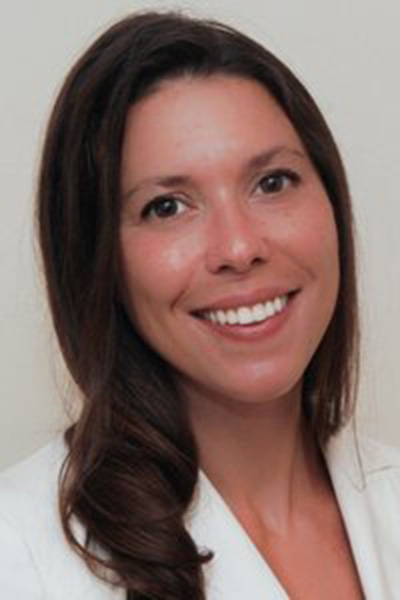
Samantha Kolkey, LCSW (she/her) has a distinguished career dedicated to supporting and empowering individuals with disabilities. She earned her Bachelor of Arts in Psychology and Women’s Studies from the University of Michigan and subsequently obtained a Master’s Degree in Social Work from the Jane Addams College of Social Work at the University of Illinois-Chicago.
Samantha began her professional journey as a case manager and clinician, working with children, youth, and families. In 2017, she transitioned into the field of disability services, assuming the role of Director of Programming at a nonprofit organization focused on supporting neurodivergent young adults in their pursuits of post-secondary education, employment, and independence. Her leadership and vision led to her promotion to Executive Director in 2018, where she honed her skills in nonprofit management and team leadership.
Throughout her career, Samantha has been instrumental in developing, implementing, and evaluating a variety of programs aimed at enhancing and expanding support services. Her approach is deeply influenced by her own neurodivergent identity, embracing values such as vulnerability, connection, collaboration, and empathy. She advocates for the social model of disability, striving to create opportunities for individuals to build fulfilling lives.
In her current role as Director of Programs and Services at the Center for Independent Futures (CIF) in Evanston, Samantha continues her commitment to partnering with individuals with disabilities to live meaningful, independent lives through innovative programs, personalized support, and community collaboration. CIF strives to create inclusive communities where everyone can thrive, pursue their goals, and achieve their dreams.
Samantha started the panel by defining Neurodiversity terminology, history, and social and medical perspectives.
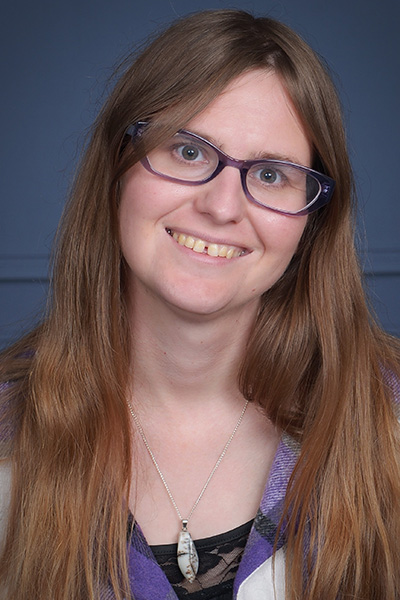
Jennifer Gerlach, LCSW, is a psychotherapist, author, and speaker based in Southern Illinois, specializing in the intersection of neurodiversity and mental health. She earned both her Bachelor of Science and Master of Social Work degrees from Southern Illinois University Edwardsville.
Identifying as a neurodivergent individual in mental health recovery, Jennifer offers a unique, empathetic perspective in her practice. She is the owner of True Story Counseling LLC, where she provides neurodiversity-affirming, recovery-oriented therapy to adolescents and adults. Her areas of specialization include autism, self-harm, psychosis, mood disorders, and young adult mental health.
Jennifer is the author of “The Psychosis and Mental Health Recovery Workbook: Activities for Young Adults from ACT, DBT, and Recovery-Oriented CBT,” a resource integrating Acceptance and Commitment Therapy (ACT), Dialectical Behavior Therapy (DBT), and Recovery-Oriented Cognitive Behavioral Therapy (CBT) to support young adults in their mental health journeys.
In addition to her clinical work, Jennifer provides training and consultation services to mental health professionals on topics such as neurodiversity-affirming care, adolescent mental health, and psychosis. She has presented nationally through organizations like PESI, sharing her expertise on therapy with autistic clients.
Jennifer’s personal experiences as a neurodivergent individual enrich her professional practice, allowing her to offer compassionate, informed care to her clients. She is committed to breaking the stigma surrounding neurodiversity and mental health, advocating for acceptance and understanding within the community.
Jennifer shared her lived experience and strategies for fostering acceptance and well-being in neurodiverse individuals.
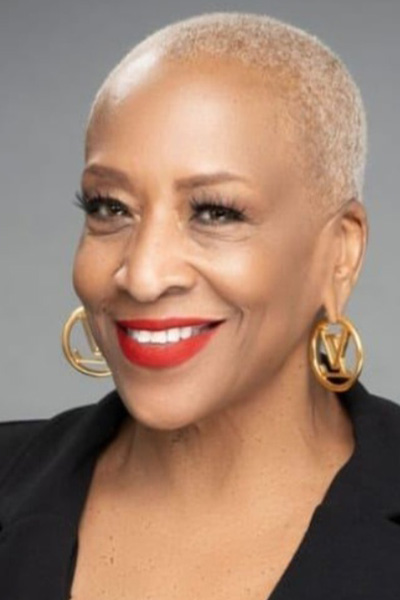
Debra Vines is the founder and CEO of The Answer Inc., a nonprofit organization dedicated to supporting families affected by autism and developmental disorders in the greater Chicagoland area. Her journey into advocacy began when her son, Jason, was diagnosed with autism in 1989. Facing a scarcity of resources and support, Debra transformed her personal challenges into a mission to assist other families navigating similar experiences.
Since its inception in 2007, The Answer Inc. has served over 4,000 families, offering services such as support groups, educational workshops, recreational programs, and workforce development initiatives. The organization also provides training for first responders and municipal staff, aiming to foster a more inclusive and understanding community.
Debra’s unwavering commitment to autism advocacy has earned her national recognition. In 2022, she was honored as one of CNN’s Top 10 Heroes, highlighting her significant contributions to the autism community. Further acknowledging her impact, Zeta Phi Beta Sorority, Incorporated, inducted Debra as an honorary member in 2023, celebrating her dedication to education and support for individuals with autism and their families.
Beyond her organizational leadership, Debra is a sought-after motivational speaker and trainer, sharing her insights and experiences to inspire others. She also hosts a radio segment on 1390 AM, further extending her advocacy and outreach efforts.
Debra Vines’ work exemplifies resilience and dedication, transforming personal adversity into a beacon of hope and support for countless families dealing with autism.
Debra closed the panel with her powerful story of lived experience and perseverance.
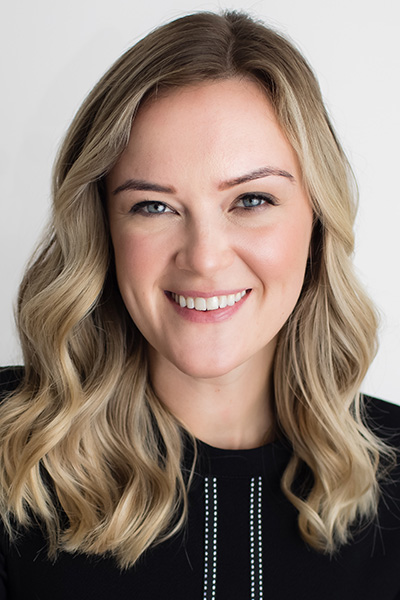
Dr. Natalie LaDuke is a Licensed Clinical Psychologist and Nationally Certified School Psychologist with a distinguished career in school psychology and mental health. She earned her doctoral degree in School Psychology from Loyola University Chicago, where her research focused on supporting marginalized students, including those who are homeless and transgender.
Before pursuing her doctorate, Dr. LaDuke began her career as a school psychologist at the Morton Freshman Center in Cicero, IL. There, she implemented district-wide mental health screenings and led social-emotional learning initiatives focused on promoting resilience, self-advocacy, and emotional regulation.
Currently, Dr. LaDuke is an Associate Professor at The Chicago School, where she teaches courses on the dissertation process, school-based mental health supports, and neurodiversity. Her research and consultation work centers on the evolving role of school psychologists, and strategies for promoting resilience in all children, including those who are neurodiverse.
Dr. LaDuke also demonstrates her commitment to supporting neurodiverse populations through her work at O’Koon Psychology Group, where she specializes in assessments for children and adolescents with learning, social/emotional, and behavioral concerns.
In addition to her clinical and academic work, Dr. LaDuke is dedicated to giving back to her field. She currently serves as the Treasurer for the Illinois School Psychological Association, where she supports and promotes best practices for helping children in schools and school psychologists in practice.
Dr. LaDuke served as our Moderator, facilitating our Q&A.

